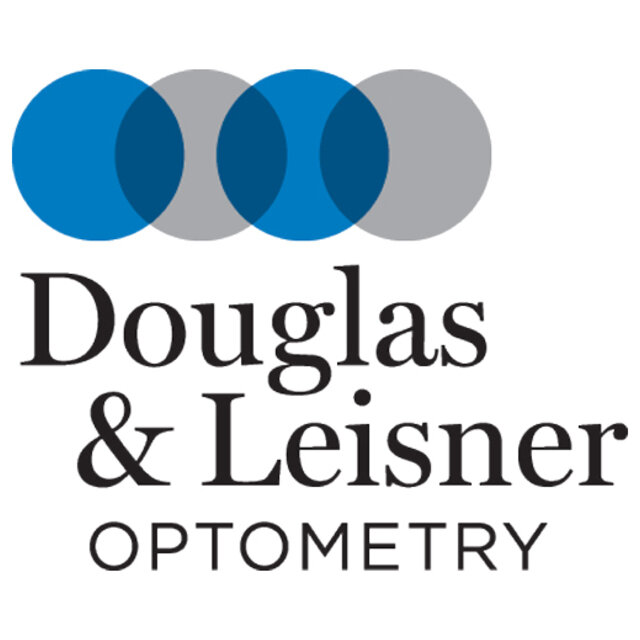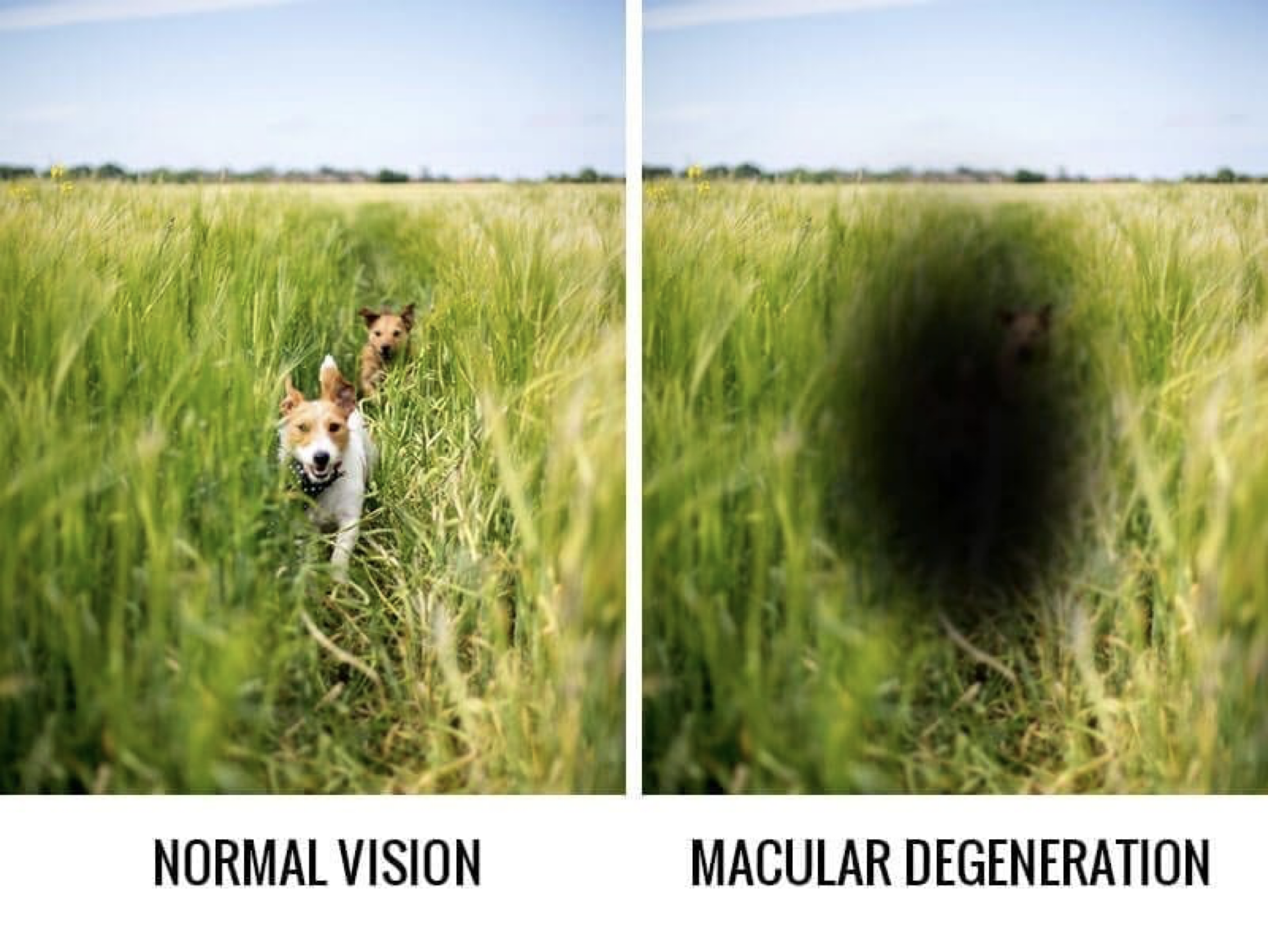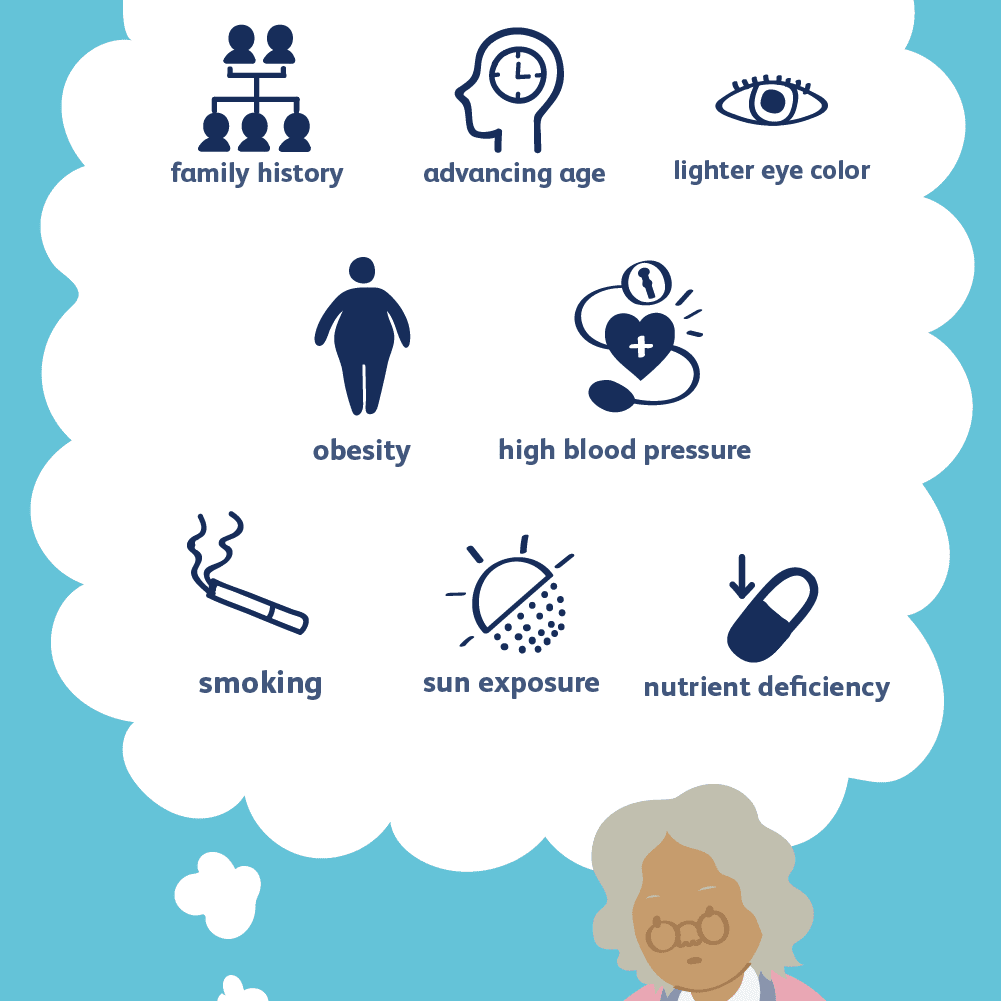What is Macular Degeneration (AMD)
Macular Degeneration
Macular Degeneration is an eye disease affecting the macula (the center of the light-sensitive retina at the back of the eye), causing loss of central vision. Age-Related Macular Degeneration (AMD) is the leading cause of severe vision loss in adults over age 50. The Centers for Disease Control and Prevention estimate that 1.8 million people have AMD and another 7.3 million are at substantial risk for vision loss from AMD.
Caucasians are at higher risk for developing AMD than other races. Women also develop AMD at an earlier age than men. AMD can occur in two forms: "dry" and "wet". Most people with macular degeneration have the dry form. While there is no specific treatment for dry AMD, studies have shown a potential benefit from vitamin supplements, a Mediterranean diet, protection from the ultraviolet light of the sun and cessation of smoking. The less common wet form may respond to intraocular injections of medications if detected and treated early.
Causes & risk factors
Heredity.
UV Light exposure.
Smoking.
Poor nutrition.
Lack of exercise.
Symptoms
In its early stages, the following signs of macular degeneration can go unnoticed:
The gradual loss of ability to see objects clearly.
The shape of objects appears distorted.
Straight lines look wavy or crooked.
Loss of clear color vision.
A dark or empty area in the center of vision.
Diagnosis
Tests performed in a comprehensive eye exam will determine if one has macular degeneration or any other eye health problems.
Treatment
With "dry" macular degeneration, the tissue of the macula gradually becomes thin and stops working properly. There is not a cure for dry AMD, and any loss in central vision cannot be restored. However, there is a link between nutrition and the progression of dry AMD. Making dietary changes and taking nutritional supplements can slow vision loss. Large human clinical trials and subsequent smaller studies linked lutein and zeaxanthin, omega 3 or consumption of fatty fishes, vitamin C, vitamin E and zinc to reducing the risk of AMD.
If detected early, wet AMD can be treated with intraocular injections of anti-VEGF medications.
Prevention
Avoid tobacco products.
Wear UV protective glasses.
Exercise for your cardiovascular health.
Controlling and monitoring diabetes and hypertension.





